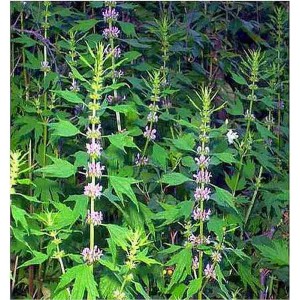Here are some herbal allies for the times during pregnancy we don’t necessarily feel so much like a pregnant goddess. Most of these herbs have been used over hundreds of years throughout many traditions. They are considered safe for pregnancy but please use caution when using them in the first trimester (other than raspberry and nettle), beware of herbs that stimulate the uterus, use moderation, apply knowledge from tradition-of-use, use caution when using standardized extracts** <3
Anemia~
Yellow dock tincture (2 teaspoons 2-3x per day)
Nettle leaf infusion (3-4x per day)
Edema~
Dandelion leaf and/or nettle leaf as a diuretic for extra fluid buildup.
Cleavers for lymphatic drainage 1 teaspoon 3x a day
massage with Grapefruit, peppermint or rosemary essential oil in a carrier oil (3-6 drops per 1 oz)
Sciatica~
St. johns wort oil, massaged onto lower back, buttocks and legs twice or more times a day.
600mg Malic acid with 150mg Magnesium supplement in 2 different tablets 4-6 times a day
Labor and postpartum stress ~
Stress during labor and postpartum can be alleviated with Motherwort Leonurus cardiaca. When used as a “mother’s cordial” during the final four weeks of pregnancy, motherwort diminishes anxiety and cramping during the birthing process. However, do not use motherwort early in pregnancy as it can encourage miscarriage. During postpartum, motherwort will lift the spirit and promote relaxation.
Insomnia~
Scullcap, passionflower and/or Valerian. As tea or 1-2 droppersful of each in hot water 3x a day or 2-3 droppers 3x a day of compound tincture.
Strong Chamomile tea 1 hour before bed with low lighting.
Inhalation of Lavender oil.
Morning sickness/Nausea–
Ginger and/or peppermint tea sipped thoughout the day. Ginger tincture 10-15 drops (diluted as needed)
Vitamin B6 25-mg tablets orally every 8 hours
Raspberry Leaf infusion
Leg cramps~
Herbs rich in nutrients like; raspberry leaf, nettle, oat straw,alfalfa etc.
200-500 mg/day of magnesium ( as tolerated by bowels. start low)
Depression or risk of postpartum depression~
St. Johns Wort tincture (1-2 teaspoons in water 2-3x a day) * do not use before being sun for a prolonged period.
Fish oil (minimum of 1000 mg per day)
Heartburn~
Slippery Elm powder 1-2 teaspoons stirred into oatmeal, applesauce or smoothie, or 2-4 lozenges (at a time) up to 12x a day
Dandelion root tincture 2 teaspoons 3x a day
Cold infusion of meadowsweet and marshmallow root

PUPPS (Pruitic Uritacaric Papules of Pregnancy) ~ Itchy rash on belly
Internal:
Dandelion root tincture 3-4x a day
External:
Infused oil of Chamomile and St.Johns Wort
Aloe Vera gel
Witch Hazel compress
Baking soda paste
Chamomile Matricaria 
Sometimes all we need is a cup of tea, and who doesn’t love chamomile? As a calming nerving it is useful for imbalances caused by anxiety, stress, inflammation and tension. Also helpful for indigestion (digestive bitter), gastritis, ulcers, flatulence, colic, pain and insomnia.
Raspberry leaf Rubus idaeus
“A preparation (such as this) which would give the uterus a more normal rhythm of powerful contraction followed by profound relaxation would help in profound and difficult labor (during which) difficulty is often caused by the fact that the uterus would not relax completely between contractions.”
-Stallworthy, 1954 Journal of pharmacy and Pharmacology
I could go on and on about raspberry leaf. Its my best friend during moon time, it saved me from my intense bouts of nausea in my first trimester of pregnancy, my child adores it and gets loads of vitamins and minerals from it, including; calcium, magnesium, iron, potassium and B-vitamins. Here are some of the benefits for pregnancy:
Strengthens wall of uterus and entire female reproductive system 
Prevents miscarriage
Aids in morning sickness
Labor preparation
Treats diarrhea
Increases and enriches milk for lactation
High in minerals and vitamins
Regulates menstrual cycle (and for those who are not pregnant and suffer from dismenorrhea)
Nettle Urtica dioica
We should all be drinking a quart of nettle tea everyday for its highly nutritive properties (calcium, magnesium and trace minerals). It enhances antioxidant systems in the liver, helpful for hypertension by improving blood lipids and inhibiting platelet aggregation, improves blood lipids, in cases of hypoglycemia it can increase serum insulin levels, stomach/ intestinal pain reliever, prevents ulcers and colitis, prevents anemia/low calcium.
In pregnancy;
Strengthens blood vessels/reduces vericosities 
Has strong reputation for decreasing risk of post partum hemorrhage
Prevents and treats anemia
Galactogauge (supports milk flow)
Partridgeberry Michella repens
As far as pelvic tonics go, Partridgeberry was considered by the eclectics to be one of the most important herbs for a successful pregnancy, and in the last weeks to ease delivery.
“This is an invaluable plant for child-bearing women. I first obtained knowledge of its use from a tribe of Indians in the west part of New York. The squaws drank it in decoction for two or three weeks previous to and during delivery, and it was the use of it that rendered that generally dreaded event so remarkably safe and easy with them.” ~Botanic Physician (Journal from 1806)
Partrigeberry is cooling and drying, use a demulcent like marshmallow or meadowsweet to balance.
Actions and indictations:
Astringent ~improves uterine tone
Nervine~ soothes nervous irritability 
Styptic ~helps prevent hemorrhaging during childbirth or uterine bleeding anytime during pregnancy
